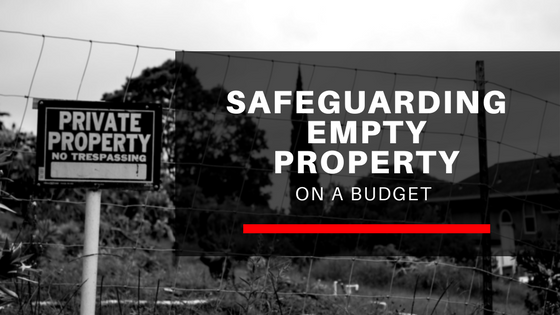If your property appears occupied, potential thieves or vandals may be deterred. You can ensure your building seems lived-in by:
- Putting lights on timers
- You can also cycle the lights throughout the building so that it seems as though people are moving around.
- Using the blinds
- One method is to leave the first-floor blinds closed, so no one can see in, while higher blinds remain open. This will give the impression that residents are upstairs.
- Make occasional changes
- If your property is unoccupied for a longer period of time, change something small but visible. Hang something in a window or put up a lawn decoration.
- Park a car in the driveway
- If you or your neighbors have an extra car, you can park it in the driveway to make it seem like people are home.
3. Check your insurance policy
Your insurance company may consider a vacant home a liability. As a result, you’ll want to contact your insurance company to find out if your coverage changed. Ask about specific policies. Some insurance companies offer “Vandalism and Malicious Mischief Coverage” that can further protect your home.
4. Visit often and irregularly
Of course, the best way to spot signs of trouble is to go and visit the property. Drop by at different times so no one can notice a pattern. On each visit, check for signs of forced entry, broken windows etc. on both the inside and outside. Especially make sure that your window latches, door latches, and other locks are secured. If you live far away from the property or can’t make regular visits, ask a neighbor or a friend to drop by. Or, you can even hire a service to do interior and exterior checks while you’re away.
5. Alert others about the vacant property
Letting the right people know about your vacant property can be very beneficial. Here are some groups to contact:
- Law enforcement
- Alert your local police department that your home is vacant. Provide a list of names of anyone who’s authorized to be on your property. Also, make sure that they have your contact number and the information of a local contact if you can’t be there. While this can’t guarantee the safety of your home, you’ll at least definitely be contacted if something happens.
- Utility providers
- Contact your building’s utility provider and ask to be notified of any odd spikes in power or water usage. This can alert you if anyone may be squatting or otherwise using your home.
- Neighbors
- Your neighbors may be able to help you keep a watch on your building, especially if there’s a Neighborhood Watch. Give them your contact information and ask them to call if they see any suspicious behavior. They may also be able to pick up any deliveries to the home for you. Also, as mentioned above, you can ask your neighbor to park an extra car in your driveway.
Of course, a security system is a great way to safeguard a vacant property. However, we understand that property managers and owners may be on a budget, or only expect their property to be on the market for a short time. In that case, these 5 tips can help protect your property from damage and unwanted visitors.
Enjoyed this article? Be sure to share us on your social media to spread the information to your property management friends and coworkers. Have any other methods you’ve used to keep your vacant property safe? Tell us in the comments below!





Comments